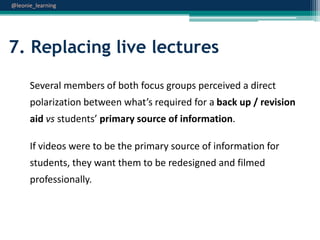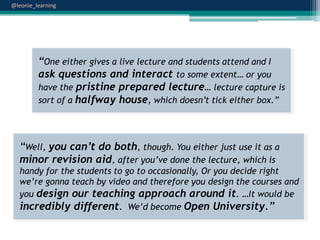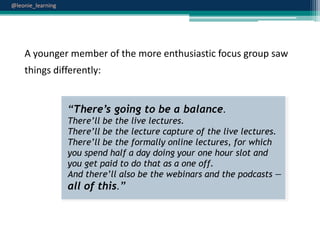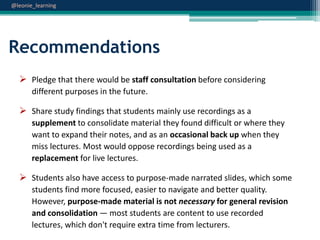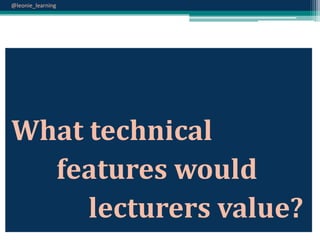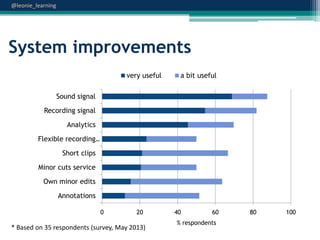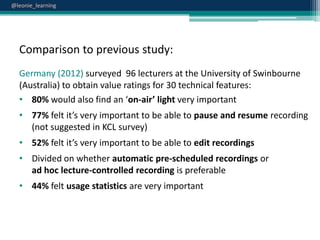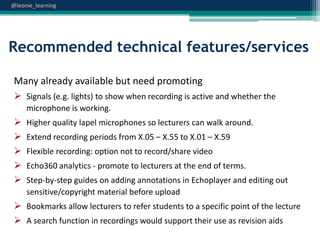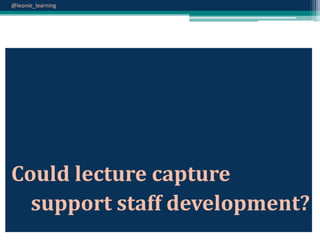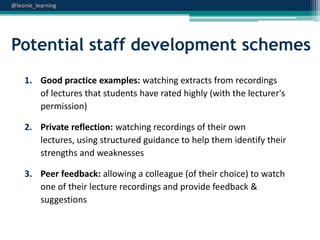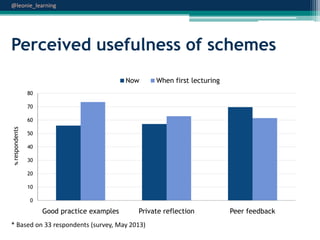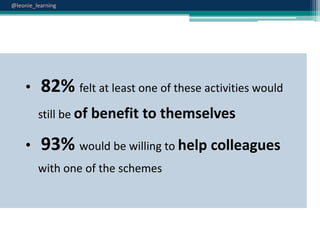This document outlines a research project on lecture capture at King's College London, focusing on its impact on year 1 and 2 medical and biomedical science students and faculty attitudes. It highlights varying levels of lecturer enthusiasm, concerns about system reliability, pressure to record, and implications for teaching practices. The findings indicate that while some lecturers see value in the technology, issues such as copyright, recording permanence, and student pressure significantly affect their perspectives.
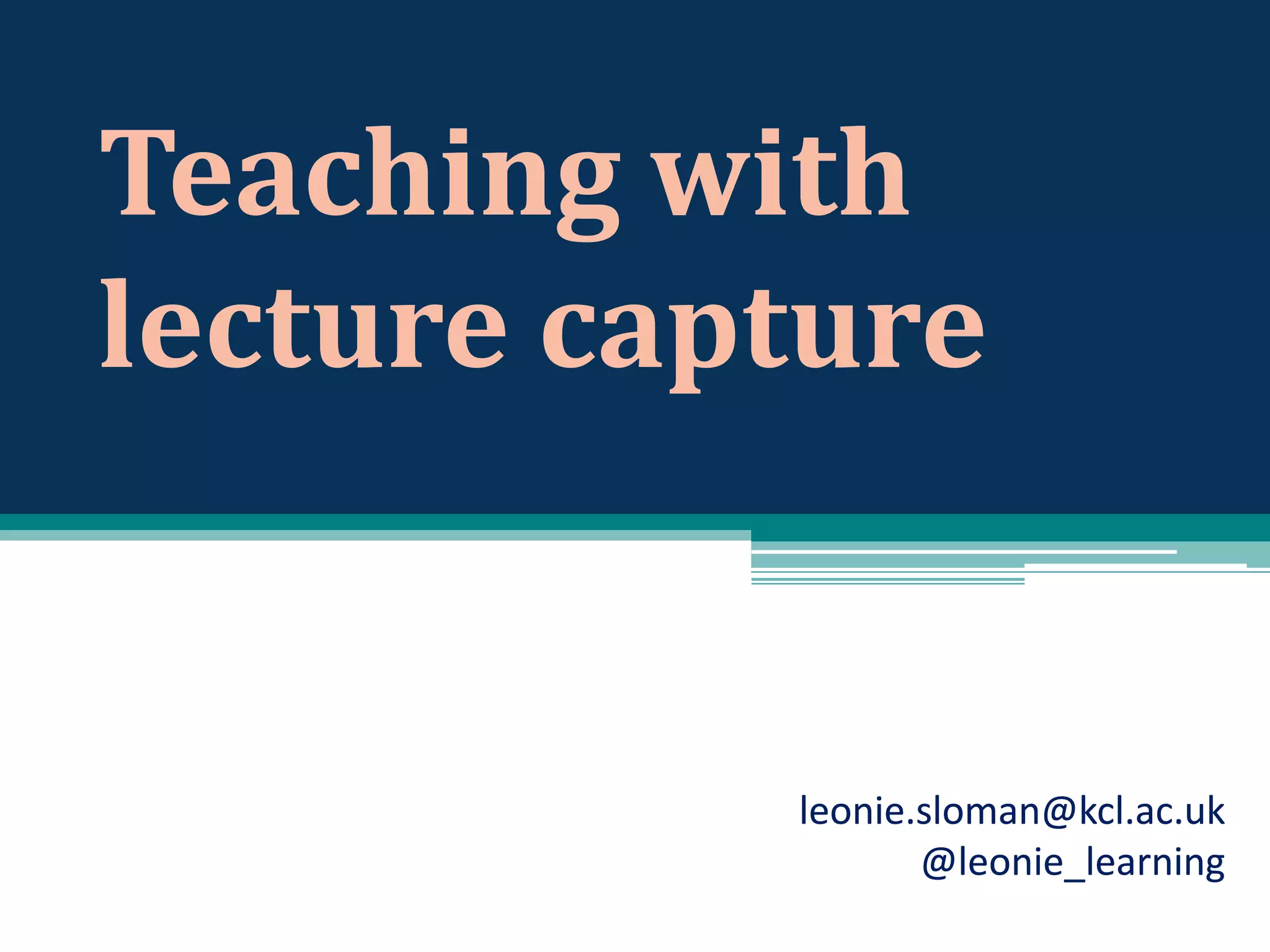
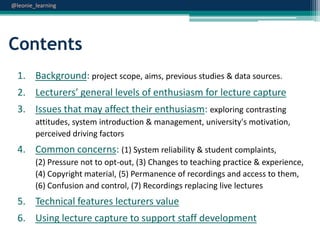
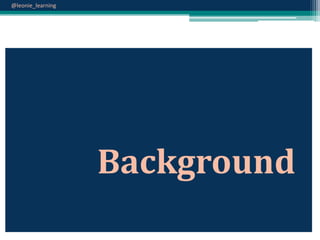
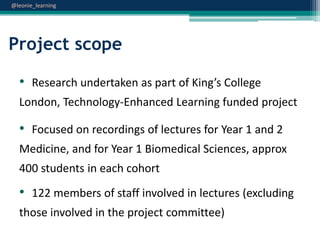
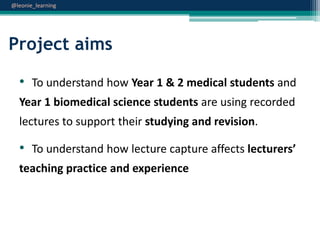
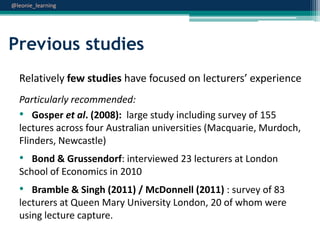
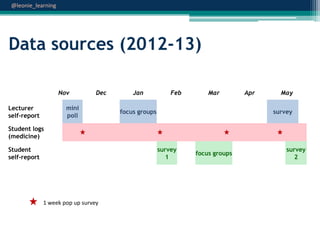
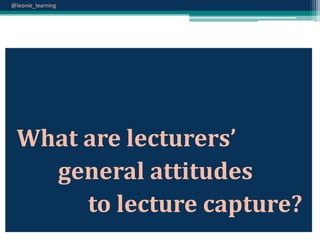
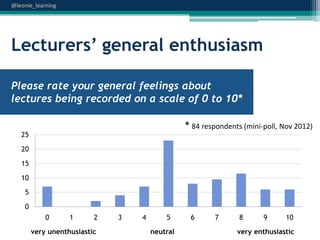
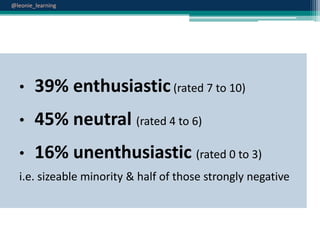
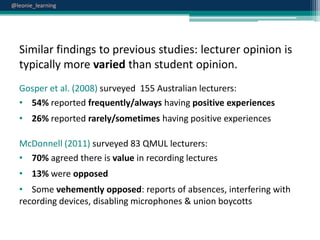
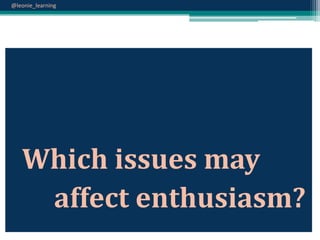
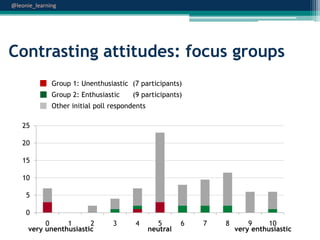
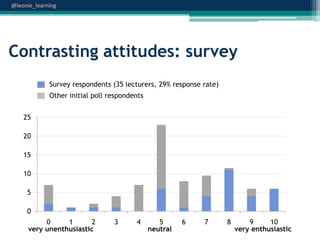
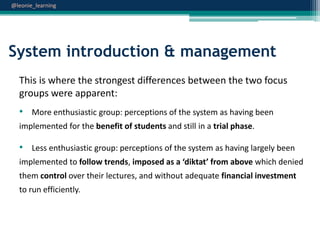
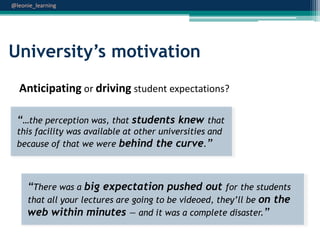
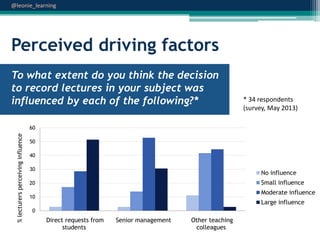
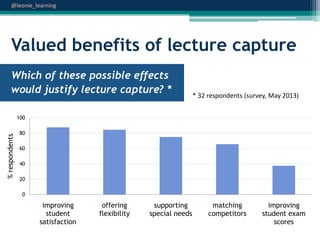
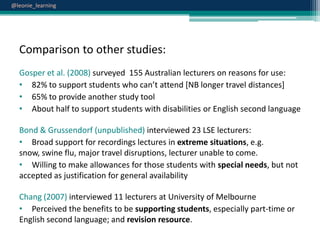
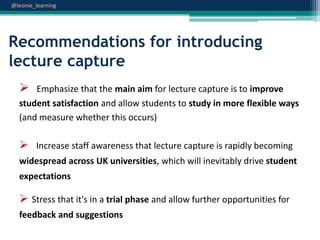
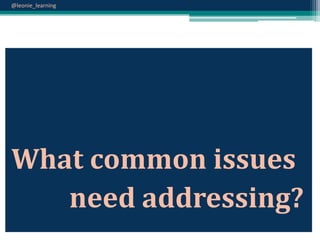
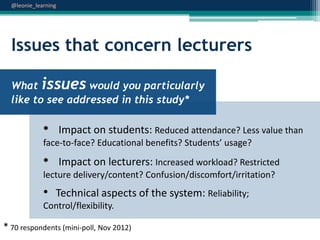
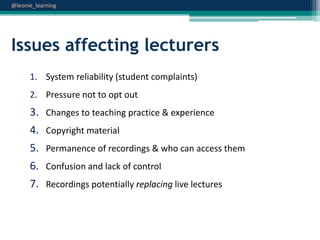
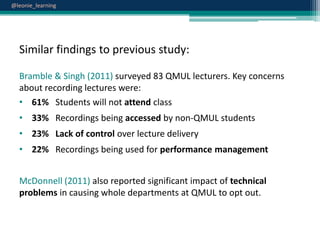
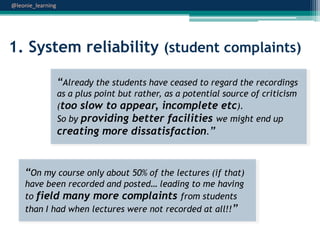
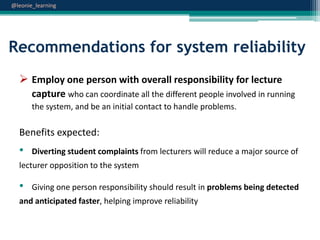
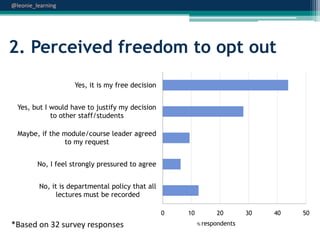
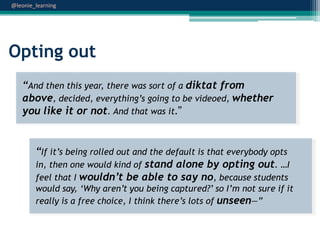
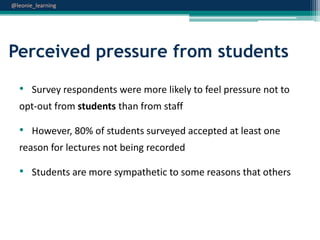
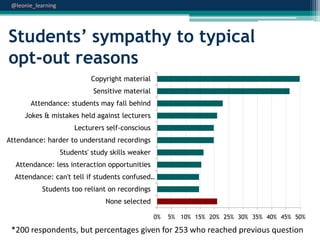
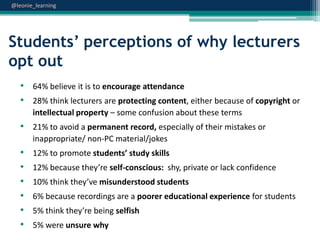
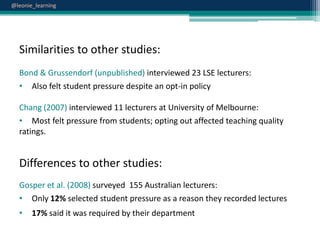
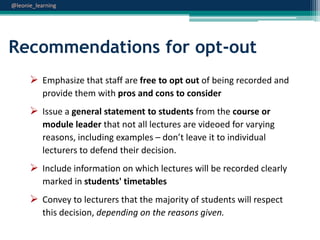
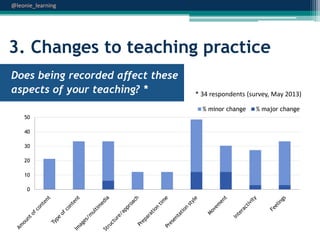
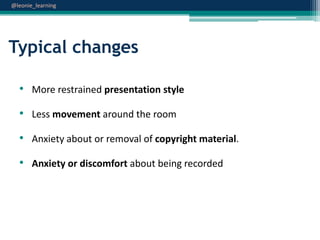
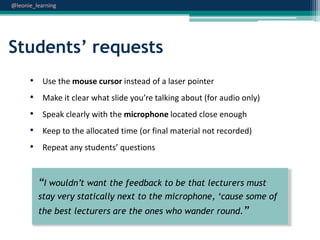
![@leonie_learning
Comparison to previous studies:
Gosper et al. (2008) surveyed 139 Australian lecturers on teaching:
• 39% made no substantial changes to lecturing style [ie 61% have]
• 45% more self-aware of spontaneous comments & 23% scripting
their lectures more
• 29% reduced movement around the lecture theatre
• 27% reduced multimedia because of copyright concerns
• 23% listened to recordings and adjusted own performance
McNeil , Woo & Gosper (2007) surveyed 815 Australian students about
what advice they’d give lecturers:
• Similarly concerns about clear cues for where to attend to in
slides, clear sound quality & pronunciation, and keeping to time.](https://image.slidesharecdn.com/1lecturerissues-131017172026-phpapp02/85/Teaching-with-lecture-capture-37-320.jpg)
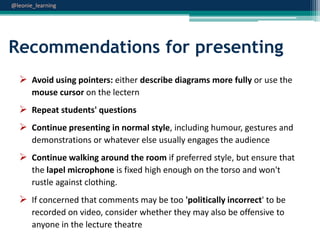
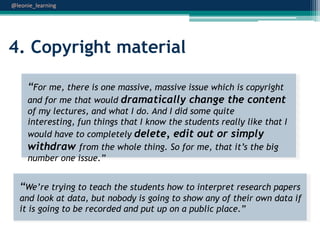
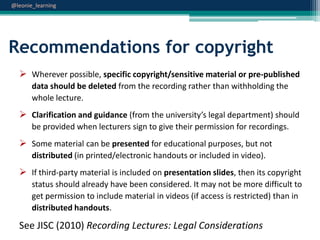
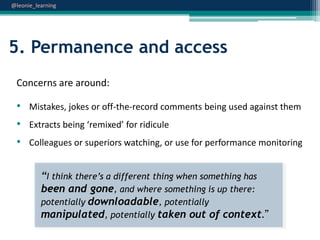
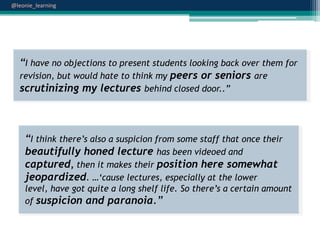
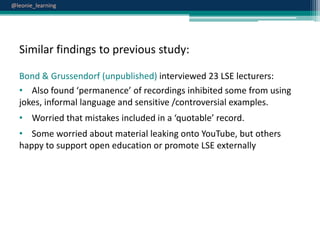
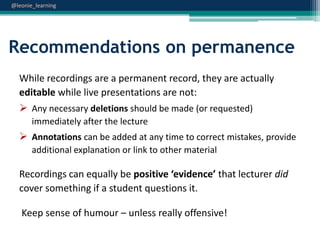
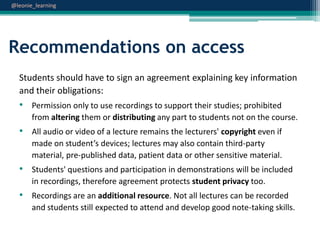
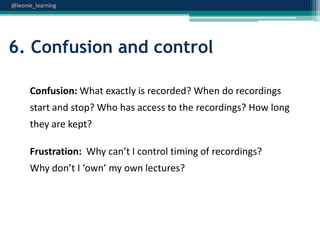
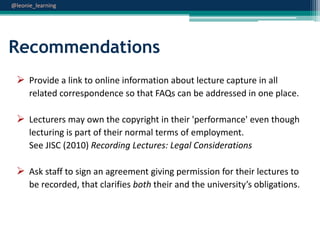
![@leonie_learning
Staff-University agreement
Recommended it would clarify:
• What exactly is recorded i.e. audio, screen & video [non-video option?]
• Which students have (password-protected) access to the recordings and
the terms of access, i.e. summary of the student-university agreement
•
•
•
•
•
How long recording will be stored & accessible, e.g. 2 academic years
What would happen if they left university’s employment within that time
Recordings will not be used for performance monitoring
Their permission would be sought for any additional usage
They should ask colleagues' permission before viewing each others'
lectures, just as they would ask before sitting in on a live lecture
• Guidance on using copyright material](https://image.slidesharecdn.com/1lecturerissues-131017172026-phpapp02/85/Teaching-with-lecture-capture-48-320.jpg)
